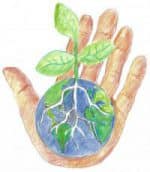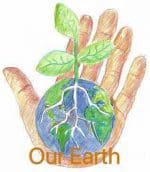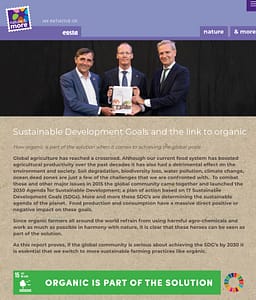Sustainable Development Goals & Organic Agriculture - Report Nature & More
Although our current food system has boosted agricultural productivity over the past decades it has also had a detrimental effect on the environment and society. Soil degradation, biodiversity loss, water pollution, climate change, ocean dead zones are just a few of the challenges that we are confronted with. To combat these and other major issues in 2015 the global community came together and launched the 2030 Agenda for Sustainable Development; a plan of action based on 17 Sustainable Development Goals (SDGs). More and more these SDG’s are determining the sustainable agenda of the planet. Food production and consumption have a massive direct positive or negative impact on these goals.
Since organic farmers all around the world refrain from using harmful agro-chemicals and work as much as possible in harmony with nature, it is clear that these heroes can be seen as part of the solution.
As this report proves, if the global community is serious about achieving the SDG’s by 2030 it is essential that we switch to more sustainable farming practices like organic.
Global agriculture has reached a cross road.Over the last few decades, the agricultural landscape has been transformed by new technologies, boosting agricultural productivity to new heights in order to meet growing global demands. However, these developments have come at the expense of negative environmental and social impacts such as soil degradation, biodiversity loss, water and soil pollution, increasing greenhouse gas emissions etc. (FAO, 2018). Ecosystems all over the world are under pressure, threatening the productive potential of the world’s natural resources and compromising the future fertility of theplanet (FAO, 2018). It is clear we need to go down a new path.



